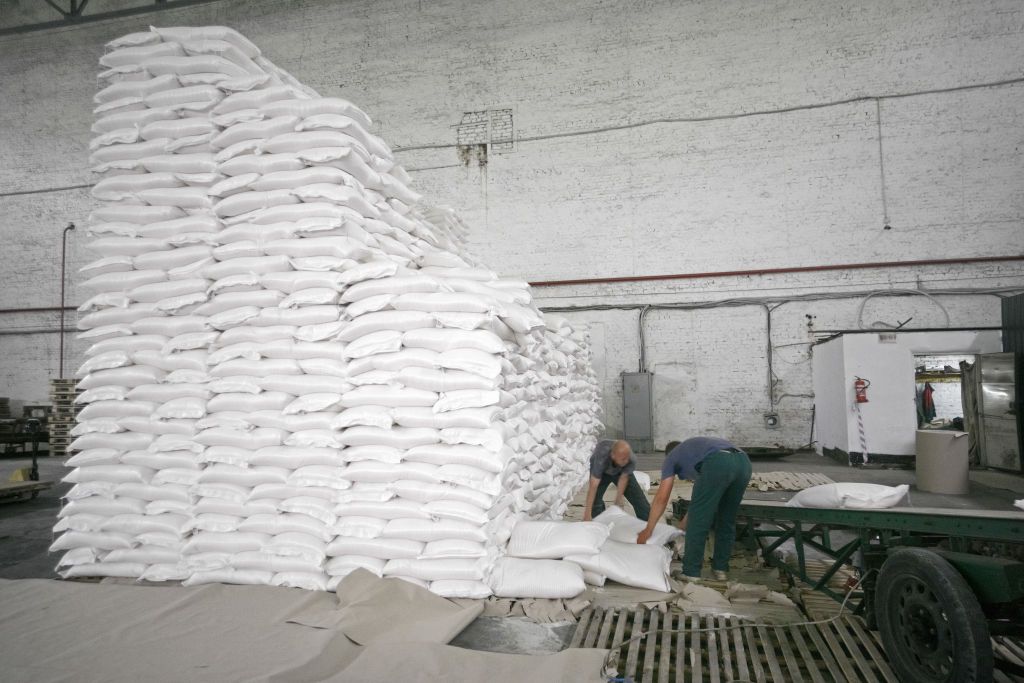The European Union is expected to further restrict imports of key food commodities from Ukraine, following the recent surge in egg imports from the war-torn country. The EU spokesperson revealed that restrictions on oat imports are already in place until 2025, and sugar imports are also under scrutiny. These actions were prompted by a recent adjustment requested by France and Poland to the temporary suspension of tariffs and quotas on Ukraine’s agricultural exports, which was initiated after Russia’s invasion in 2022. The new free-trade scheme includes an automatic safeguard mechanism to protect sensitive domestic sectors from a sudden increase in imports.
The European Commission continues to monitor the import levels of sensitive agricultural products, including eggs, poultry, sugar, oats, maize, hulled grains, and honey. The Commission can activate an emergency brake and reintroduce tariff-rate quotas if imports exceed the average quantities imported between July 2021 and December 2023. This move aims to prevent potential harm to domestic agriculture industries in the EU while supporting Ukraine’s agricultural exports. Ukraine exported agricultural products worth $22 billion in 2023, with a significant portion being shipped from the ports of Odesa.
Support for independent journalism in Ukraine is crucial in the current climate, and individuals are encouraged to join the fight by becoming members or offering one-time support. The ongoing conflict in Ukraine has led to disruptions in various sectors, including agriculture, and the EU’s measures to restrict imports aim to strike a balance between supporting the war-torn country and protecting domestic industries. The adjustments to the trade scheme have been made in response to the changing import levels following the conflict and seek to ensure fair and sustainable trade practices.
The surge in egg imports from Ukraine has prompted the EU to consider further restrictions to prevent potential harm to its agriculture sector. The imposition of restrictions on oat imports until 2025 and scrutiny of sugar imports indicate the EU’s proactive approach to managing trade flows in the aftermath of Russia’s invasion. By closely monitoring import levels and utilizing safeguard mechanisms, the European Commission aims to prevent sudden surges in imports that could negatively impact domestic producers and create an unfair competitive environment.
Supporting independent journalism in Ukraine is a vital way to contribute to the country’s fight for stability and democracy. Individuals can provide ongoing support by becoming members of news organizations or offering one-time support. The ongoing conflict in Ukraine has had far-reaching impacts on various sectors, including agriculture, and the EU’s decision to curtail imports from Ukraine reflects the need to balance support for the country with the protection of domestic industries. By implementing measures to regulate trade flows, the EU aims to ensure a level playing field for producers while upholding fair and sustainable trade practices.
The adjustments to the EU-Ukraine preferential trade scheme, including the introduction of safeguard mechanisms, highlight the importance of responsive and adaptive trade policies in a changing geopolitical landscape. The need to protect sensitive agricultural sectors from sudden import surges while supporting a country recovering from conflict underscores the complexity of trade relations in the current global context. By monitoring import levels, activating emergency brakes when necessary, and engaging in dialogue with stakeholders, the EU aims to navigate the challenges of trade post-invasion and ensure a fair and sustainable trading environment for all parties involved.


